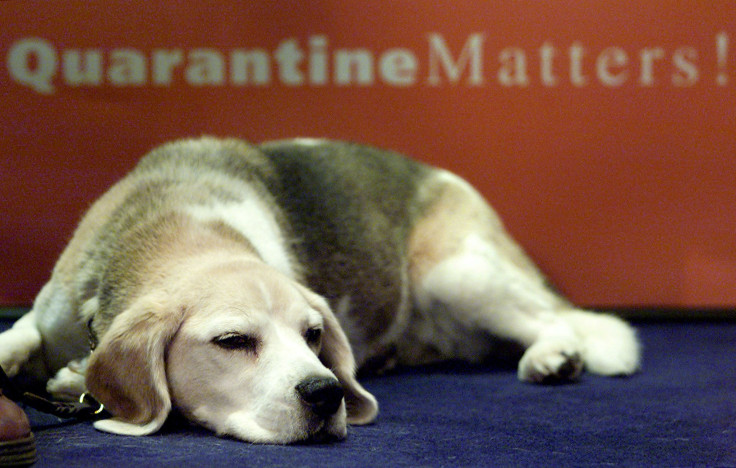Dogs Can Be Trained to Detect Deadly Hospital Superbug

Dogs can sniff out deadly hospital superbug clostridium defficile not just from stool samples of the patients but also from the air surrounding patients in the hospital, according to a new study.
Researchers say that the dogs can sniff out these infections with great accuracy that can help in screening patients easily and even preventing C. difficile outbreaks.
C. difficile infection generally occurs in people who have recently been admitted in a hospital and were on antibiotics. The symptoms of the infection range from mild diarrhea to severe inflammation of the bowel.
In the study, researchers from Netherlands found that with training, dogs can smell the presence of C. difficile in stool samples. This organism produces distinct smell in the stool that a dog can detect.
A two-year old male beagle, named Cliff, was chosen for the study. Beagles are known for their sharp sense of smell and are routinely employed as detection dogs.
For the study, the dog was trained for two months by a professional instructor to identify the superbug in stool samples of patients who had C. difficile infection.
The dog's detection abilities were tested by asking him to smell 50 stool samples from the people who had the infection and 50 stool samples that were from healthy people. Cliff was able to correctly identify all 50 positive samples and 47 negative samples.
The test results showed that the dog had 100 percent sensitivity (a measure of proportion of positive samples identified) and 94% specificity (that measures the proportion of negatives correctly identified).
The dog was even tested for his abilities in real world setting. In two hospitals, he correctly identified 25 out of 30 cases (sensitivity 83%) and 265 out of 270 negative controls (specificity 98%).
The dog wasn't just incredibly good at sniffing out the superbug, but he was also fast. He screened the entire ward of patients in less than ten minutes. Normally, testing for samples takes days and these tests are expensive.
Researchers say that using an animal for detection comes with its disadvantages - the animals are usually unpredictable. However, they add that dogs can be trained to detect the bug in hospitals.
"This could have great potential for C. difficile infection screening in healthcare facilities and thus contribute to C. difficile infection outbreak control and prevention," researchers conclude.
Published by Medicaldaily.com



























